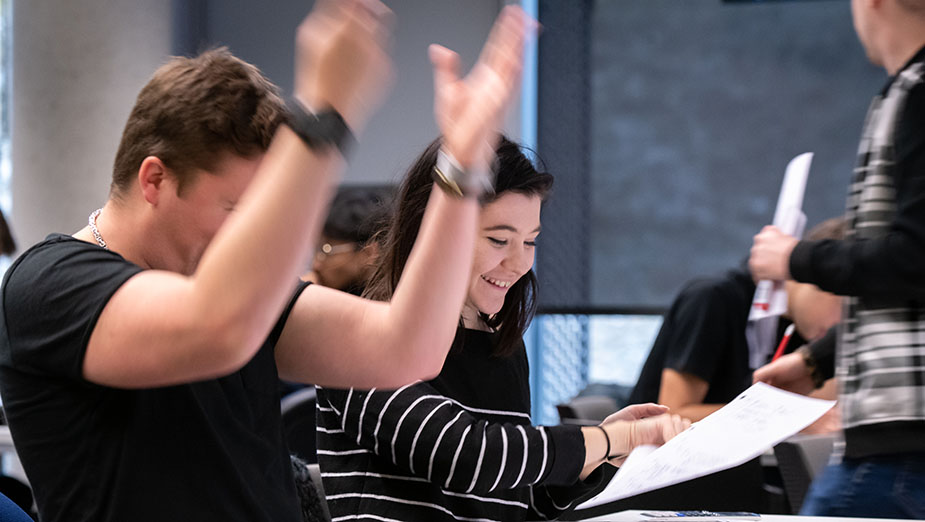Key information
- Duration:
- 4 years full time
- Typical A-level offer:
- A*AA
View full entry requirements - UCAS code:
- G101
- Start date:
- September 2026
- 95% of our research overall in Mathematical Sciences was assessed to be world leading or internationally excellent (REF 2021)
How can mathematics help us understand the dynamics of infectious diseases? Or how an idea circulates on social media? Or the behaviour of queues? We’ll show you how mathematics solves real-world problems. You’ll work with experts whose research is having an impact – from forecasting local outbreaks of COVID, to predicting floods.
In your first year, you’ll explore the basics of mathematics. This includes analysis and linear algebra, as well as an introduction to computational mathematics. In your second year, you’ll add probability and statistics. In your third and fourth year, you then build on your existing knowledge and discover new aspects of the subject including:
- mathematical biology
- cryptography
- probability
- financial mathematics
- partial differential equations.
You also explore a topic of your choice in the MMath project in your final year.
This course is flexible, so you can focus on what fascinates you while gaining a strong foundation in core mathematics. You’ll develop your analytical and modelling skills using industry-standard software such as MATLAB, Python and R. You’ll also have the opportunity to apply for a placement, where you can gain experience working with a company.
Our Department is a close-knit community, and you’ll get to know your lecturers on an individual basis. Their dedication and support will help you to get the most from your degree. Academic advisers support you every step of the way and you’ll have lots of opportunities to engage with potential employers. You’ll also have a dedicated careers advisor.
During integrated Masters year, you’ll develop new mathematical skills and knowledge – particularly relevant if you’re interested in going on to a research career, or into specialised fields including data science, finance or mathematical modelling.
Accreditation
- This programme is accredited to meet the educational requirements of the Chartered Mathematician designation awarded by the Institute of Mathematics and its Applications. Find out more
We understand that deciding where and what to study is a very important decision. We’ll make all reasonable efforts to provide you with the courses, services and facilities described in this prospectus. However, if we need to make material changes, for example due to government or regulatory requirements, or unanticipated staff changes, we’ll let you know as soon as possible.
MMath or BSc?
We also offer this course without research placements, or as a three-year BSc. Find out about the benefits of an integrated Masters year.
The lecturers are genuinely passionate, not only about their research, but also about teaching and sharing knowledge.”Rhiannon Hawkins
Mathematics BSc
Find out about Megan’s journey through her maths degree at Sussex

Entry requirements
A-level
| Typical offer | A*AA |
|---|---|
| Contextual offer | View contextual offer Not everyone has the same support to get to higher education – we help you reach your potential. When we receive applications through UCAS, we consider all factors and will sometimes make contextual offers as part of our Access and Participation Plan |
| Subjects | A-levels must include both Mathematics and Further Mathematics, with grade A* in one and grade A in the other. |
| GCSEs | You should have a broad range of GCSEs grade 9-4 (A*-C), including good grades in relevant subjects. |
| Extended Project Qualification | We take the EPQ into account when considering your application and it can be useful in the summer when your results are released if you have narrowly missed the conditions of your offer. We do not routinely include the EPQ in the conditions of your offer but we sometimes offer alternative conditions that include the EPQ. If you wish to discuss this further please contact us |
Other UK qualifications
Cambridge Pre-U Principal Subjects (including A-level mixes)
| Typical offer | D3 M1 M1 If you have one A-level and two Cambridge Pre-U Principal Subjects we would expect you to have grade grade A at A-level and, M1 and D3 in two Pre-Us. If you have two A-levels and a Cambridge Pre-U Principal Subject we would normally expect you to have grades AA at A-level and D3 in Pre-U. |
|---|---|
| Subjects | You must have either Mathematics at A-level, with at least grade A or Cambridge Pre-U Principal subject at D3 and Further Mathematics. |
| GCSEs | You should have a broad range of GCSEs grades 9-4 (A*-C), including good grades in relevant subjects. |
International Baccalaureate
| Typical offer | 36 points overall from the full IB Diploma. |
|---|---|
| Subjects | Higher Levels must include Mathematics, with a grade of 7. For entry in 2021, either Mathematics: Analysis and Approaches or Mathematics: Applications and Interpretation at Higher Level will be accepted. |
Pearson BTEC Level 3 National Extended Certificate and two A-levels
| Typical offer | Grades AA in A-levels plus Distinction* in BTEC Level 3 National Extended Certificate. |
|---|---|
| Contextual offer | View contextual offer Not everyone has the same support to get to higher education – we help you reach your potential. When we receive applications through UCAS, we consider all factors and will sometimes make contextual offers as part of our Access and Participation Plan |
| Subjects | A-levels must include both Mathematics and Further Mathematics. |
Scottish Highers
| Typical offer | AAAAA |
|---|---|
| Subjects | Highers must include Mathematics, grade A. You will also need an Advanced Higher in Mathematics (grade A). |
Welsh Baccalaureate Advanced
| Typical offer | Advanced Welsh Baccalaureate Skills Challenge Certificate and two A-level grades A*AA |
|---|---|
| Subjects | A-levels must include both Mathematics and Further Mathematics, with grade A* in one and grade A in the other. |
| GCSEs | You should have a broad range of GCSEs grade 9-4 (A*-C), including good grades in relevant subjects. |
International Baccalaureate
| Typical offer | 36 points overall from the full IB Diploma. |
|---|---|
| Subjects | Higher Levels must include Mathematics, with a grade of 7. For entry in 2021, either Mathematics: Analysis and Approaches or Mathematics: Applications and Interpretation at Higher Level will be accepted. |
European Baccalaureate
| Typical offer | Overall result of 83% |
|---|---|
| Additional requirements | Evidence of existing academic ability in Mathematics to the highest level is essential (normally with a final grade of at least 8.5). |
Other international qualifications
Australia
| Typical offer | Relevant state (Year 12) High School Certificate, and 95% in the ATAR or UAI/TER/ENTER, or a Queensland OP of 2 or better.
|
|---|---|
| Additional requirements | Evidence of existing academic ability in Mathematics to a high level is essential. Our entry requirements are guidelines and we assess all applications on a case-by-case basis.
|
Austria
| Typical offer | Reifeprüfung or Matura with an overall result of 1.6 or better for first-year entry. |
|---|---|
| Additional requirements | Evidence of existing academic ability in Mathematics to a high level is essential. Our entry requirements are guidelines and we assess all applications on a case-by-case basis. |
Belgium
| Typical offer | Certificat d'Enseignement Secondaire Supérieur (CESS) or Diploma van Hoger Secundair Onderwijs with a good overall average. |
|---|---|
| Subject-specific knowledge | Evidence of existing academic ability at a high level in Mathematics is essential. |
| Please note | Our entry requirements are guidelines and we assess all applications on a case-by-case basis. |
Bulgaria
| Typical offer | Diploma za Sredno Obrazovanie with excellent final-year scores (normally 5.5 overall with 6 in key subjects). |
|---|---|
| Additional requirements | Evidence of existing academic ability in Mathematics to a high level is essential. Our entry requirements are guidelines and we assess all applications on a case-by-case basis.
|
Canada
| Typical offer | Ontario Secondary School Diploma (OSSD) 80% from 6 grade 12 U, U/C or M courses |
|---|---|
| Additional requirements | Evidence of existing academic ability in Mathematics to a high level is essential. Our entry requirements are guidelines and we assess all applications on a case-by-case basis. |
China
| Typical offer | If you have the Goakao, we will consider applications for direct entry to first year. You would normally need an overall average of 75%, including required subjects. We are also pleased to consider applications if you are following a recognised International Foundation Year or you have one or more years of Higher Education in China at a recognised degree awarding institution. The Senior High School Graduation alone would not be sufficient for entry to our undergraduate degrees, but you may be eligible to apply for our International Foundation Year. If you successfully complete an International Foundation Year, you can progress on to a relevant undergraduate course at Sussex. Check which qualifications the International Study Centre accepts for the International Foundation Year. |
|---|---|
| Subject-specific knowledge | Evidence of existing academic ability at a high level in Mathematics is essential. |
| Please note | Our entry requirements are guidelines and we assess all applications on a case-by-case basis. |
Croatia
| Typical offer | Maturatna Svjedodžba with an overall score of at least 5. |
|---|---|
| Additional requirements | Evidence of existing academic ability in Mathematics to a high level is essential. Our entry requirements are guidelines and we assess all applications on a case-by-case basis. |
Cyprus
| Typical offer | Apolytirion of Lykeion with an overall average of 19/20 and above will be considered for first-year entry. |
|---|---|
| Additional requirements | Evidence of existing academic ability in Mathematics to a high level is essential. Our entry requirements are guidelines and we assess all applications on a case-by-case basis. |
Czech Republic
| Typical offer | Maturita with a good overall average. |
|---|---|
| Subject-specific knowledge | Evidence of existing academic ability at a high level in Mathematics is essential. |
| Please note | Our entry requirements are guidelines and we assess all applications on a case-by-case basis. |
Denmark
| Typical offer | Højere Forberedelseseksamen (HF) or Studentereksamen with an overall average of 10 on the new grading scale. |
|---|---|
| Additional requirements | Evidence of existing academic ability in Mathematics to a high level is essential. Our entry requirements are guidelines and we assess all applications on a case-by-case basis. |
Finland
| Typical offer | Pass Ylioppilastutkinto with overall final result of at least EEEM |
|---|---|
| Additional requirements | Evidence of existing academic ability in Mathematics to a high level is essential. Our entry requirements are guidelines and we assess all applications on a case-by-case basis.
|
France
| Typical offer | French Baccalauréat with an overall final result of at least 15/20. |
|---|---|
| Additional requirements | You will need to be taking the science strand within the French Baccalauréat with a final result of at least 14/20 in Mathematics. |
Germany
| Typical offer | German Abitur with an overall result of 1.6 or better. |
|---|---|
| Additional requirements | You will need a very good final result in Mathematics (at least 14/15) at a high level. |
Greece
| Typical offer | Apolytirion with an overall average of at least 19.5 will be considered for first-year entry. You must also have either Apolytirion pathway in Mathematics with a score of 19 or the Pan Hellenic in Mathematics with an overall score of 17. |
|---|---|
| Additional requirements | Our entry requirements are guidelines and we assess all applications on a case-by-case basis. |
Hong Kong
| Typical offer | Hong Kong Diploma of Secondary Education (HKDSE) with grades of 5, 5, 5 from three subjects including two electives. |
|---|---|
| Additional requirements | You must have some advanced/higher level ability in Mathematics, and will need to complete both the Compulsory and Extended Mathematics components. Our entry requirements are guidelines and we assess all applications on a case-by-case basis. |
Hungary
| Typical offer | Erettsegi/Matura with a good average of at least 55555. |
|---|---|
| Additional requirements | Evidence of existing academic ability in Mathematics to a high level is essential. Our entry requirements are guidelines and we assess all applications on a case-by-case basis. |
India
| Typical offer | Standard XII results for entry into 1st year (depending on board and course choice):
We will also consider students for entry into our integrated foundation years with 60+% |
|---|---|
| Additional requirements | Evidence of existing academic ability in Mathematics to a high level is essential. Our entry requirements are guidelines and we assess all applications on a case-by-case basis. |
Iran
| Typical offer | Where direct entry is unsuitable, we'll automatically consider you for one of our Foundation Years. Or you might want to apply to one of our International Foundation Years at the international Study Centre on Campus. Visit isc.sussex.ac.uk/our-courses/international-foundation-year or www.sussex.ac.uk/study/undergraduate/courses/foundation-years |
|---|---|
| Subject-specific knowledge | Evidence of existing academic ability at a high level in Mathematics is essential. |
| Please note | Our entry requirements are guidelines and we assess all applications on a case-by-case basis. |
Ireland
| Typical offer | Irish Leaving Certificate (Higher Level) at H1,H1,H2,H2,H2. |
|---|---|
| Additional requirements | Highers must include Mathematics, grade H1. |
Israel
| Typical offer | Bagrut, with at least 8/10 in at least six subjects, including one five-unit subject. |
|---|---|
| Subject-specific knowledge | Evidence of existing academic ability at a high level in Mathematics is essential. |
| Please note | Our entry requirements are guidelines and we assess all applications on a case-by-case basis. |
Italy
| Typical offer | Italian Diploma Di Maturità or Diploma Pass Di Esame Di Stato with a final Diploma mark of 90/100. |
|---|---|
| Additional requirements | Evidence of existing academic ability in Mathematics to a high level is essential. Our entry requirements are guidelines and we assess all applications on a case-by-case basis. |
Japan
| Typical offer | Where direct entry is unsuitable, we'll automatically consider you for one of our Foundation Years. Or you might want to apply to one of our International Foundation Years at the international Study Centre on Campus. Visit isc.sussex.ac.uk/our-courses/international-foundation-year or www.sussex.ac.uk/study/undergraduate/courses/foundation-years |
|---|---|
| Subject-specific knowledge | Evidence of existing academic ability at a high level in Mathematics is essential. |
| Please note | Our entry requirements are guidelines and we assess all applications on a case-by-case basis. |
Kazakhstan
| Typical offer | Applicants with Nazarbayev Intellectuals Schools (NIS) Grade 12 Certificate may be considered. The grades in the offer will match the published A level requirements for each course. |
|---|---|
| Additional requirements | Where courses have specific subject requirements, these will be expected to be studied at Advanced level. |
| Subject-specific knowledge | Evidence of existing academic ability at a high level in Mathematics is essential. |
| Please note | Our entry requirements are guidelines and we assess all applications on a case-by-case basis. |
Latvia
| Typical offer | Atestats par Visparejo videjo Izglitibu with very good grades in state exams. |
|---|---|
| Subject-specific knowledge | Evidence of existing academic ability at a high level in Mathematics is essential. |
| Please note | Our entry requirements are guidelines and we assess all applications on a case-by-case basis. |
Lithuania
| Typical offer | Brandos Atestatas including scores of 80-90% in at least three state examinations (other than English). |
|---|---|
| Subject-specific knowledge | Evidence of existing academic ability at a high level in Mathematics is essential. |
| Please note | Our entry requirements are guidelines and we assess all applications on a case-by-case basis. |
Luxembourg
| Typical offer | Pass the Diplome de Fin d’Etudes Secondaires with 48 points overall |
|---|---|
| Additional requirements | Evidence of existing academic ability in Mathematics to a high level is essential. Our entry requirements are guidelines and we assess all applications on a case-by-case basis.
|
Malaysia
| Typical offer | at least Sijil Tinggi Persekolahan Malaysia (STPM) with grades of BBB, Matriculation with a least a grade of 3.0 or UEC with an overall average grade B4 (70%) from 6 subjects. |
|---|---|
| Additional requirements | Evidence of existing academic ability in Mathematics to a high level is essential. Our entry requirements are guidelines and we assess all applications on a case-by-case basis. |
Netherlands
| Typical offer | Voorereidend Wetenschappelijk Onderwijs (VWO), normally with an average of at least 7. |
|---|---|
| Additional requirements | Evidence of existing academic ability in Mathematics to a high level is essential. Our entry requirements are guidelines and we assess all applications on a case-by-case basis.
|
Nigeria
| Typical offer | You are expected to have one of the following:
You must also have a score of C6 or above in WAEC/SSC English. Where direct entry is unsuitable, we'll automatically consider you for one of our Foundation Years. Or you might want to apply to one of our International Foundation Years at the international Study Centre on Campus. Visit isc.sussex.ac.uk/our-courses/international-foundation-year or www.sussex.ac.uk/study/undergraduate/courses/foundation-years |
|---|---|
| Subject-specific knowledge | Evidence of existing academic ability at a high level in Mathematics is essential. |
| Please note | Our entry requirements are guidelines and we assess all applications on a case-by-case basis. |
Norway
| Typical offer | Norwegian Vitnemal Fra Den Videregaende Opplaering - Pass with an overall average of 5 |
|---|---|
| Additional requirements | Evidence of existing academic ability in Mathematics to a high level is essential. Our entry requirements are guidelines and we assess all applications on a case-by-case basis. |
Pakistan
| Typical offer | You can apply for direct entry to Year 1 if you are completing at least two years of Bachelor degree studies. You'll normally need to complete a Foundation year after taking Intermediate Certificate or the Higher Secondary Certificate (HSC). You might choose one of our International Foundation Years at the International Study Centre on campus. |
|---|---|
| Additional requirements | Evidence of existing academic ability in Mathematics to a high level is essential. Our entry requirements are guidelines and we assess all applications on a case-by-case basis. |
Poland
| Typical offer | Pass Matura with least 3 Extended level subjects including Mathematics in the 85th percentile.
|
|---|---|
| Additional requirements | Please note: Our entry requirements are guidelines and we assess all applications on a case-by-case basis. |
Portugal
| Typical offer | Diploma de Ensino Secundario normally with an overall mark of 19/20. |
|---|---|
| Additional requirements | Evidence of existing academic ability in Mathematics to a high level is essential. Our entry requirements are guidelines and we assess all applications on a case-by-case basis. |
Romania
| Typical offer | Diploma de Bacalaureat with an overall average of 9 including a score of 8 in Mathematics |
|---|---|
| Additional requirements | Our entry requirements are guidelines and we assess all applications on a case-by-case basis. |
Russia
| Typical offer | Applicants who have good grades in the Attestat o Srednem Obrazovami (Certificate of Secondary Education) and who have successfully completed the first year of a Russian University degree, with a minimum GPA of 4.0, will be considered for admission to the first year of our bachelor’s degree courses. |
|---|---|
| Subject-specific knowledge | Evidence of existing academic ability at a high level in Mathematics is essential. |
| Please note | Our entry requirements are guidelines and we assess all applications on a case-by-case basis. |
Singapore
| Typical offer | A-levels, as well as certain certificates and diplomas. |
|---|---|
| Subject-specific knowledge | Evidence of existing academic ability at a high level in Mathematics is essential. |
| Please note | Our entry requirements are guidelines and we assess all applications on a case-by-case basis. |
Slovakia
| Typical offer | Pass Vysvedčenie o maturitnej skúške (Maturita) with an average grade of 1.2 from 4 subjects including high scores in Mathematics.
|
|---|---|
| Additional requirements | Please note: Our entry requirements are guidelines and we assess all applications on a case-by-case basis. |
Slovenia
| Typical offer | Secondary School Leaving Diploma or Matura with at least 26 points overall. |
|---|---|
| Additional requirements | Evidence of existing academic ability in Mathematics to a high level is essential. Our entry requirements are guidelines and we assess all applications on a case-by-case basis. |
South Africa
| Typical offer | National Senior Certificate with very good grades. |
|---|---|
| Subject-specific knowledge | Evidence of existing academic ability at a high level in Mathematics is essential. |
| Please note | Our entry requirements are guidelines and we assess all applications on a case-by-case basis. |
Spain
| Typical offer | Spanish Título de Bachillerato (LOGSE) with an overall average result of 8.5. |
|---|---|
| Additional requirements | Evidence of existing academic ability in Mathematics to a high level is essential. Our entry requirements are guidelines and we assess all applications on a case-by-case basis. |
Sri Lanka
| Typical offer | Sri Lankan A-levels. |
|---|---|
| Subject-specific knowledge | Evidence of existing academic ability at a high level in Mathematics is essential. |
| Please note | Our entry requirements are guidelines and we assess all applications on a case-by-case basis. |
Sweden
| Typical offer | Fullstandigt Slutbetyg/Högskoleförberedande Examen with a total of 2,500 credits to include A grades in the majority of subjects and to include grade A in Mathematics.
|
|---|---|
| Additional requirements | Our entry requirements are guidelines and we assess all applications on a case-by-case basis. |
Switzerland
| Typical offer | Federal Maturity Certificate. |
|---|---|
| Subject-specific knowledge | Evidence of existing academic ability at a high level in Mathematics is essential. |
| Please note | Our entry requirements are guidelines and we assess all applications on a case-by-case basis. |
Turkey
| Typical offer | We'll consider students who have taken the Lise Diplomasi or Lise Bitirme, with a score of at least 4/5 or 80/100 in their final year, on a case by case basis for direct entry to year 1. Where direct entry is unsuitable, we'll automatically consider you for one of our Foundation Years. Or you might want to apply to one of our International Foundation Years at the international Study Centre on Campus. Visit isc.sussex.ac.uk/our-courses/international-foundation-year or www.sussex.ac.uk/study/undergraduate/courses/foundation-years |
|---|---|
| Additional requirements | Evidence of existing academic ability in Mathematics to a high level is essential. Our entry requirements are guidelines and we assess all applications on a case-by-case basis.
|
USA
| Typical offer | We look at your full profile considering everything you are studying, including the High School Graduation Diploma, Grade 12 GPA, SAT tests and subject tests and/or ACT grades and AP tests. We expect to see a combination of these qualifications. Alongside your High School Graduation Diploma, we would ideally like to see 3 good AP scores with either, a combined SAT test score (evidence-based reading and writing and mathematics) of 1300, or a combined ACT score of 26 AP and SAT Subject tests Please check the individual course pages for our typical A-level offer and see below for the corresponding scores we would require from AP test scores:
We will also accept a combination of any 3 AP tests and SAT subject test where a score of 600 in an SAT subject test can be substituted for an AP test in the above table If you are applying for a degree with an A level subject requirement in Mathematics, Physics, Chemistry or Biology will normally need to hold an AP test in that subject. College level credits We also accept college level 3-credit courses in academic subjects as the equivalent of a UK A Level on a case by case basis. These can be combined with AP tests and or SAT subject tests Associate degrees An Associate degree with a GPA of 3.0 will meet our entry requirements for year 1. Foundation Year entry Students who have a High School Diploma and SAT or ACT tests only would be eligible to apply for our Foundation Year
| ||||||||||
|---|---|---|---|---|---|---|---|---|---|---|---|
| Additional requirements | Evidence of existing academic ability in Mathematics to a high level is essential. Our entry requirements are guidelines and we assess all applications on a case-by-case basis. |
My country is not listed
If your qualifications aren’t listed or you have a question about entry requirements, contact us
English language requirements
IELTS (Academic)
6.0 overall, including at least 5.5 in each component
Check your IELTS qualification meets all of our language requirements
IELTS scores are valid for two years from the test date. You cannot combine scores from more than one sitting of the test. Your score must be valid when you begin your Sussex course.
We accept IELTS One Skills Retake.
Other English language requirements
Proficiency tests
Cambridge Advanced Certificate in English (CAE)
169 overall, including at least 162 in each skill
Find out more about Cambridge English: Advanced.
We would normally expect the CAE test to have been taken within two years before the start of your course.
You cannot combine scores from more than one sitting of the test.
Cambridge Certificate of Proficiency in English (CPE)
169 overall, including at least 162 in each skill
Find out more about Cambridge English: Proficiency.
We would normally expect the CPE test to have been taken within two years before the start of your course.
You cannot combine scores from more than one sitting of the test.
Pearson (PTE Academic)
59 overall, including at least 59 in all four skills.
Check your Pearson (PTE Academic) qualification meets all of our language requirements
Find out more about Pearson (PTE Academic).
Please refer to our English language requirements above, and as listed for each of our undergraduate courses, to find the appropriate English level for the course you are applying for.
PTE (Academic) scores are valid for two years from the test date. You cannot combine scores from more than one sitting of the test. Your score must be valid when you begin your Sussex course.
We do not accept the PTE Academic Online test.
TOEFL (iBT)
80 overall, including at least 17 in Listening, 18 in Reading, 20 in Speaking, 17 in Writing.
Check your TOEFL qualification meets all of our language requirements
Find out more about TOEFL (iBT).
TOEFL (iBT) scores are valid for two years from the test date. You cannot combine scores from more than one sitting of the test. Your score must be valid when you begin your Sussex course.
The TOEFL Institution Code for the University of Sussex is 9166.
English language qualifications
AS/A-level (GCE)
Grade C or above in English Language.
Hong Kong Advanced Level Examination (HKALE)/ AS or A Level: grade C or above in Use of English
GCE O-level
Grade C or above in English.
Brunei/Cambridge GCE O-level in English: grades 1-6.
Singapore/Cambridge GCE O-level in English: grades 1-6.
GCSE or IGCSE
Grade C or above in English as a First Language (grade 4 or above in GCSE from 2017).
Grade B or above in English as a Second Language (grade 6 or above in GCSE from 2017).
Ghana Senior Secondary School Certificate
If awarded before 1993: grades 1-6 in English language.
If awarded between 1993 and 2005: grades A-D in English language.
Hong Kong Diploma of Secondary Education (HKDSE)
Level 4, including at least 3 in each component in English Language.
Indian School Certificate (Standard XII)
The Indian School Certificate is accepted at the grades below when awarded by the following examination boards:
Central Board of Secondary Education (CBSE) – English Core only: 70%
Council for Indian School Certificate Examinations (CISCE) - English: 70% or Grade 3
International Baccalaureate Diploma (IB)
English A or English B at grade 5 or above.
Kenya Certificate of Secondary Education
Grades A – C in English
Malaysian Certificate of Education (SPM) 119/GCE O-level
If taken before the end of 2008: grades 1-5 in English Language.
If taken from 2009 onwards: grade C or above in English Language.
The qualification must be jointly awarded by the University of Cambridge Local Examinations Syndicate (UCLES).
West African Senior School Certificate
Grades 1-6 in English language when awarded by the West African Examinations Council (WAEC) or the National Examinations Council (NECO).
Country exceptions
Select to see the list of exempt English-speaking countries
If you are a national of one of the countries below, or if you have recently completed a qualification equivalent to a UK Bachelors degree or higher in one of these countries, you will normally meet our English requirements. Note that qualifications obtained by distance learning or awarded by studying outside these countries cannot be accepted for English language purposes.
You will normally be expected to have completed the qualification within two years before starting your course at Sussex. If the qualification was obtained earlier than this we would expect you to be able to demonstrate that you have maintained a good level of English, for example by living in an English-speaking country or working in an occupation that required you to use English regularly and to a high level.
Please note that this list is determined by the UK’s Home Office, not by the University of Sussex.
List of exempt countries
- Antigua and Barbuda
- Australia
- Bahamas
- Barbados
- Belize
- Canada**
- Dominica
- Grenada
- Guyana
- Ireland
- Jamaica
- New Zealand
- St Kitts and Nevis
- St Lucia
- St Vincent and the Grenadines
- Trinidad and Tobago
- United Kingdom
- USA
** Canada: you must be a national of Canada; other nationals not on this list who have a degree from a Canadian institution will not normally be exempt from needing to provide evidence of English.
Admissions information for applicants
| Transfers into Year 2 | No |
|---|
If your qualifications aren’t listed or you have a question about entry requirements, contact us
For details on any additional costs, check out the Fees and scholarships section.
My favourite thing about the course would be the friendly, relaxed environment in the Maths Department, and how easy it is to just go up and ask any questions to any of the lecturers in their offices.” Dylan Hutcheson
Mathematics (research placement) MMath
- Video transcript
Dylan: My favourite thing about the course would be the friendly, relaxed environment in the Maths Department, and how easy it is to just go up and ask any questions to any of the lecturers in their offices. They’re always happy to help, you can just come along at any time really.
Course content
This is a single-honours course, allowing you to focus in depth on your core subject.
Find out about our types of undergraduate degrees, their structure, modules and credits
Your degree
In your first year, you’ll explore the basics of mathematics. This includes analysis and linear algebra, as well as an introduction to computational mathematics.
Teaching
Teaching methods typically include:

78%: Lecture
5%: Seminar
17%: Practical
Assessment
Assessment methods typically include:
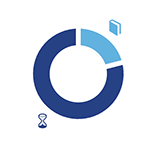
21%: Coursework
79%: Examination
Contact hours and workload
This year of study includes approximately 1,200 hours of work. This breaks down into about 264 hours of contact time and about 936 hours of independent study.
Engage and actively participate throughout your studies to get the most out of your course.
Your modules
Core modules
Core modules are taken by all students on the course. They give you a solid grounding in your chosen subject and prepare you to explore the topics that interest you most.
Autumn teaching
Spring teaching
We regularly review our modules to incorporate student feedback, staff expertise, as well as the latest research and teaching methodology. We’re planning to run these modules in the academic year 2025/26. However, there may be changes to these modules in response to feedback, staff availability, student demand or updates to our curriculum. We’ll make sure to let you know of any material changes to modules at the earliest opportunity.
We’ll do our best to provide as much optional choice as we can, but timetabling constraints mean it may not be possible to take some module combinations. The structure of a small number of courses means that the order of modules or the streams you choose may determine whether modules are core or optional. This means that your core modules or options may differ from what’s shown here.
Check back in January 2026 for more details of the modules running in the academic year 2026/27.
Your degree
In Year 2, you’ll continue with mathematical foundations, and add probability and statistics.
Teaching
Teaching methods typically include:
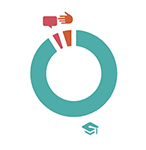
91%: Lecture
4%: Seminar
5%: Practical
Assessment
Assessment methods typically include:
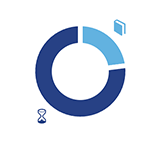
23%: Coursework
77%: Examination
Contact hours and workload
This year of study includes approximately 1,200 hours of work. This breaks down into about 264 hours of contact time and about 936 hours of independent study.
Engage and actively participate throughout your studies to get the most out of your course.
Your modules
Core modules
Core modules are taken by all students on the course. They give you a solid grounding in your chosen subject and prepare you to explore the topics that interest you most.
- Algebra
- Calculus of Several Variables
- Introduction to Probability
- Ordinary Differential Equations
- Summer Research Placement 1
Autumn teaching
Spring teaching
We regularly review our modules to incorporate student feedback, staff expertise, as well as the latest research and teaching methodology. We’re planning to run these modules in the academic year 2025/26. However, there may be changes to these modules in response to feedback, staff availability, student demand or updates to our curriculum. We’ll make sure to let you know of any material changes to modules at the earliest opportunity.
We’ll do our best to provide as much optional choice as we can, but timetabling constraints mean it may not be possible to take some module combinations. The structure of a small number of courses means that the order of modules or the streams you choose may determine whether modules are core or optional. This means that your core modules or options may differ from what’s shown here.
Check back in January 2026 for more details of the modules running in the academic year 2026/27.
Your degree
In Year 3, you’ll have the opportunity to develop your employability skills working on your project. And you can choose the topics that interest you most from a range of options.
Teaching
Teaching methods typically include:
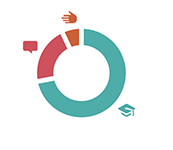
72%: Lecture
21%: Seminar
7%: Practical
Assessment
Assessment methods typically include:
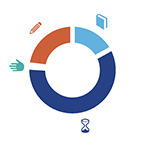
17%: Coursework
59%: Examination
1%: Practical
23%: Written assessment
Contact hours and workload
This year of study includes approximately 1,200 hours of work. This breaks down into about 264 hours of contact time and about 936 hours of independent study.
Engage and actively participate throughout your studies to get the most out of your course.
Your modules
Core modules
Core modules are taken by all students on the course. They give you a solid grounding in your chosen subject and prepare you to explore the topics that interest you most.
Autumn teaching
Spring teaching
Options
Alongside your core modules, you can choose options to broaden your horizons and tailor your course to your interests. This list gives you a flavour of our options, which are kept under review and may change, for example in response to student feedback or the latest research.
While it’s our aim for students to take their preferred combinations of options, this can’t be guaranteed and will be subject to timetabling. Options may be grouped and if so, students will be able to choose a set number of options from the selection available in any particular group.
- Applied Numerical Analysis (L.6)
- Communicating STEM
- Computing for Data Analytics and Finance (L6)
- Data Science Research Methods (L6)
- Financial Mathematics (L.6)
- Functional Analysis (L.6)
- Introduction to Mathematical Biology (L6)
- Linear Statistical Models (L6)
- Probability Models (L6)
Autumn teaching
Spring teaching
We regularly review our modules to incorporate student feedback, staff expertise, as well as the latest research and teaching methodology. We’re planning to run these modules in the academic year 2025/26. However, there may be changes to these modules in response to feedback, staff availability, student demand or updates to our curriculum. We’ll make sure to let you know of any material changes to modules at the earliest opportunity.
We’ll do our best to provide as much optional choice as we can, but timetabling constraints mean it may not be possible to take some module combinations. The structure of a small number of courses means that the order of modules or the streams you choose may determine whether modules are core or optional. This means that your core modules or options may differ from what’s shown here.
Check back in January 2026 for more details of the modules running in the academic year 2026/27.
Your degree
In your final year, you’ll focus on a research topic of your choice in your MMath project. You’ll also choose options from a range of mathematical subjects. This means you’ll have the opportunity to specialise in areas that interest you most, while also gaining a broad set of skills.
Teaching
Teaching methods typically include:
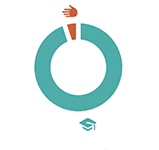
95%: Lecture
5%: Practical
Assessment
Assessment methods typically include:
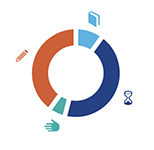
10%: Coursework
44%: Examination
6%: Practical
40%: Written assessment
Contact hours and workload
This year of study includes approximately 1,200 hours of work. This breaks down into about 187 hours of contact time and about 1,013 hours of independent study.
Engage and actively participate throughout your studies to get the most out of your course.
Your modules
Core modules
Core modules are taken by all students on the course. They give you a solid grounding in your chosen subject and prepare you to explore the topics that interest you most.
Autumn teaching
Autumn and spring teaching
Options
Alongside your core modules, you can choose options to broaden your horizons and tailor your course to your interests. This list gives you a flavour of our options, which are kept under review and may change, for example in response to student feedback or the latest research.
While it’s our aim for students to take their preferred combinations of options, this can’t be guaranteed and will be subject to timetabling. Options may be grouped and if so, students will be able to choose a set number of options from the selection available in any particular group.
- Applied Numerical Analysis (L.7)
- Data Science Research Methods (L7)
- Financial Mathematics (L.7)
- Functional Analysis (L.7)
- Introduction to Mathematical Biology (L7)
- Linear Statistical Models (L7)
- Probability Models (L7)
Autumn teaching
Spring teaching
We regularly review our modules to incorporate student feedback, staff expertise, as well as the latest research and teaching methodology. We’re planning to run these modules in the academic year 2025/26. However, there may be changes to these modules in response to feedback, staff availability, student demand or updates to our curriculum. We’ll make sure to let you know of any material changes to modules at the earliest opportunity.
We’ll do our best to provide as much optional choice as we can, but timetabling constraints mean it may not be possible to take some module combinations. The structure of a small number of courses means that the order of modules or the streams you choose may determine whether modules are core or optional. This means that your core modules or options may differ from what’s shown here.
Check back in January 2026 for more details of the modules running in the academic year 2026/27.
Research placements (each summer throughout this degree)
Each summer throughout your degree you can apply to do a research placement based at Sussex.
Research in the Department of Mathematics plays an important role in the current development of areas as diverse as:
- analysis and partial differential equations
- mathematical physics
- mathematics applied to biology
- numerical analysis and scientific computing
- probability and statistics.
On your research placement, you work on cutting-edge projects that contribute to the work of the research group you’re placed with.
These are a great way to gain practical experience of Mathematics research, and receive unique training for your future career. You’ll also receive funding to cover your living expenses during any placements you take.
Find out about other placements and internships
Students and staff share their experiences of Mathematics at Sussex
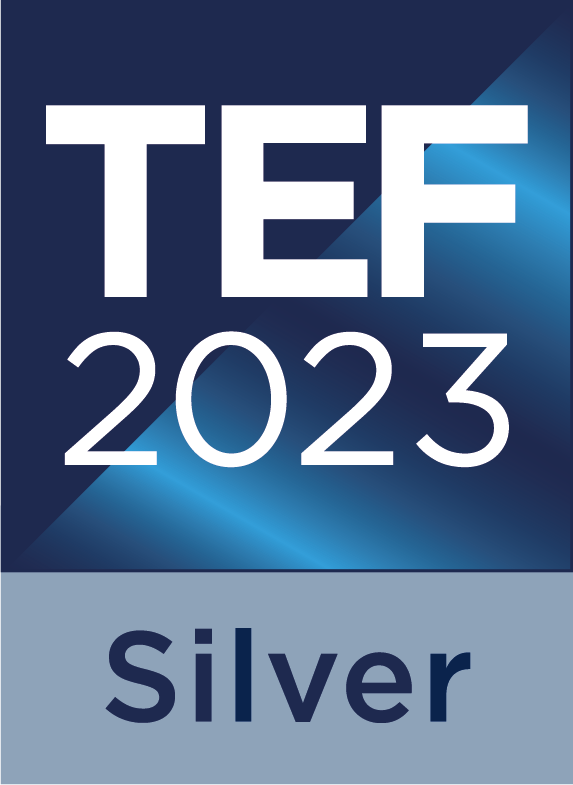
Silver
The student experience and student outcomes are typically very high quality.
This rating was awarded in 2023, for four years.
(Teaching Excellence Framework 2023)
Find out more about our approach to teaching and supporting you to thrive
Our staff
What I find most rewarding in teaching is seeing my students’ enthusiasm for learning and supporting their curiosity for a deeper understanding of Mathematics.”Dr Masoumeh Dashti
Senior Lecturer in Mathematics
Dr Chandrasekhar Venkataraman
Associate Professor In Mathematics
Fees
Fees are not yet set for the academic year 2026/27 – please check back in September 2025. Note that your fees, once they’re set, may be subject to an increase on an annual basis.
Find out about typical living costs for studying at Sussex
Find out about our terms and conditions
Scholarships
Details of our scholarships are not yet set for entry in the academic year 2026/27.
Careers
You can be confident that our courses provide you with the necessary skills and experience to secure employment or further studies with some of the world’s leading institutions.
You’ll have a wide range of paid work opportunities within the Department – from teaching and research opportunities in the summer, to outreach roles throughout the year.
There are plenty of opportunities for you to develop your careers skills, including:
- talks by potential employers
- advice on choosing a career path
- CV and application writing
- preparing for job interviews.
Our graduates go onto a range of careers in finance and accounting, digital media, teaching, engineering and healthcare.
What to do with a Mathematics degree
Explore the careers you might be interested in after studying for a degree in Mathematics
Working while you study
Our Careers and Entrepreneurship team can help you find part-time work while you study. Find out more about career development and part-time work
The teaching is top class and you learn vital transferable skills that lay the foundation for a successful career.Conor Osborne
Mathematics (research placement) MMath
Design your future at Sussex
Taking the next step in your career can feel daunting, but we’ll help you to explore, connect and flourish throughout your studies and beyond.
As a Sussex student, you’ll learn how to tackle real-world challenges and have access to tailored programmes of careers support:
- our Career Lab helps you to explore your options, build key skills and connect with employers. Take part in internships, community consultancy projects and insight visits, where you can learn about life at organisations including Brighton & Hove Albion Football Club, Gatwick Airport and the Knepp Rewilding Project
- one-to-one coaching with your Faculty Careers Consultant can enable you to identify your career goals, write an effective CV and prepare for future interviews
- entrepreneurship initiatives like StartUp Sussex and Ideas Lab can empower you to turn your concepts into reality.
Explore how our Careers and Entrepreneurship team can support you
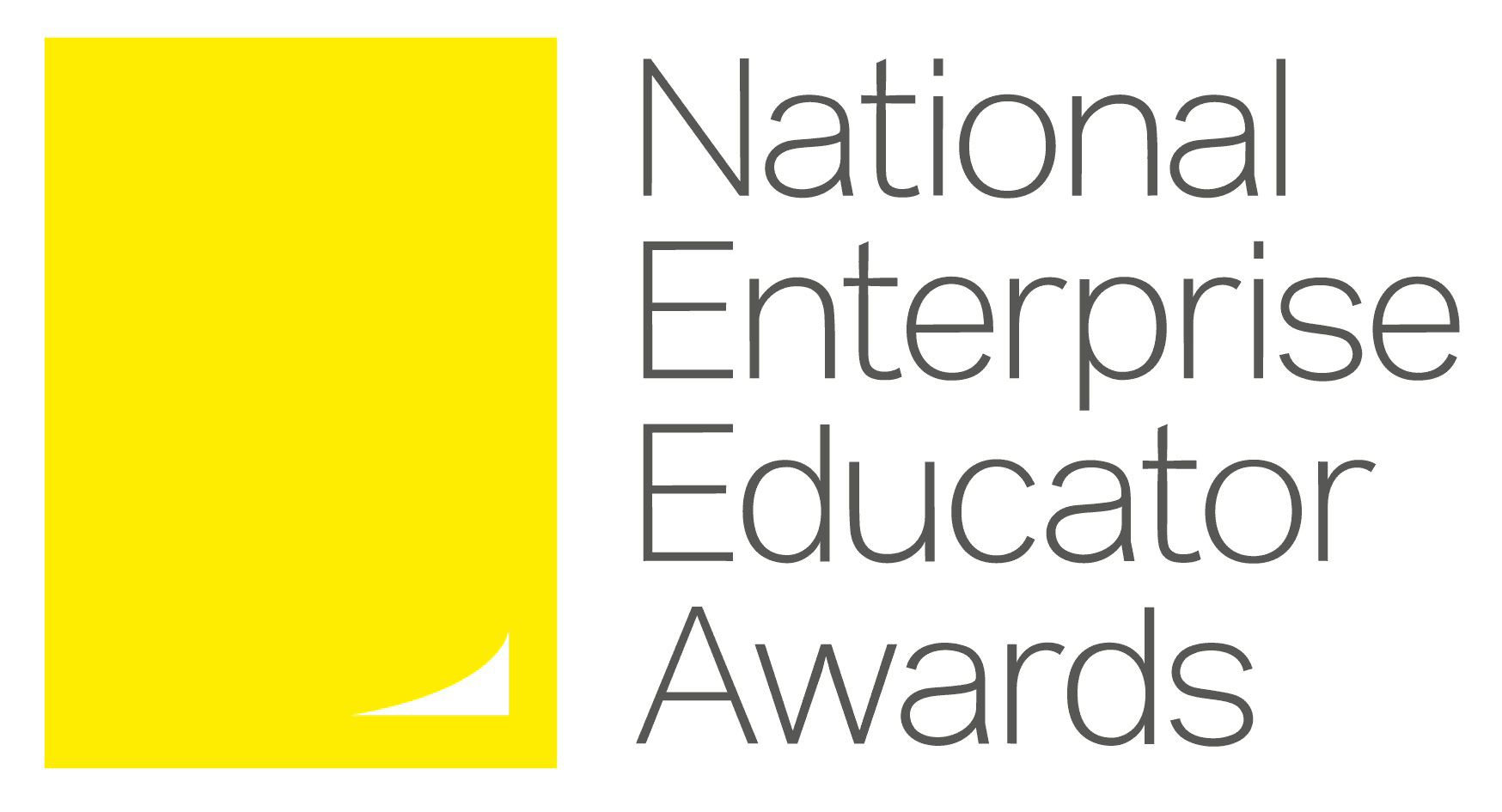
Winner
Entrepreneurship Catalyst Award
National Enterprise Educator Awards 2024
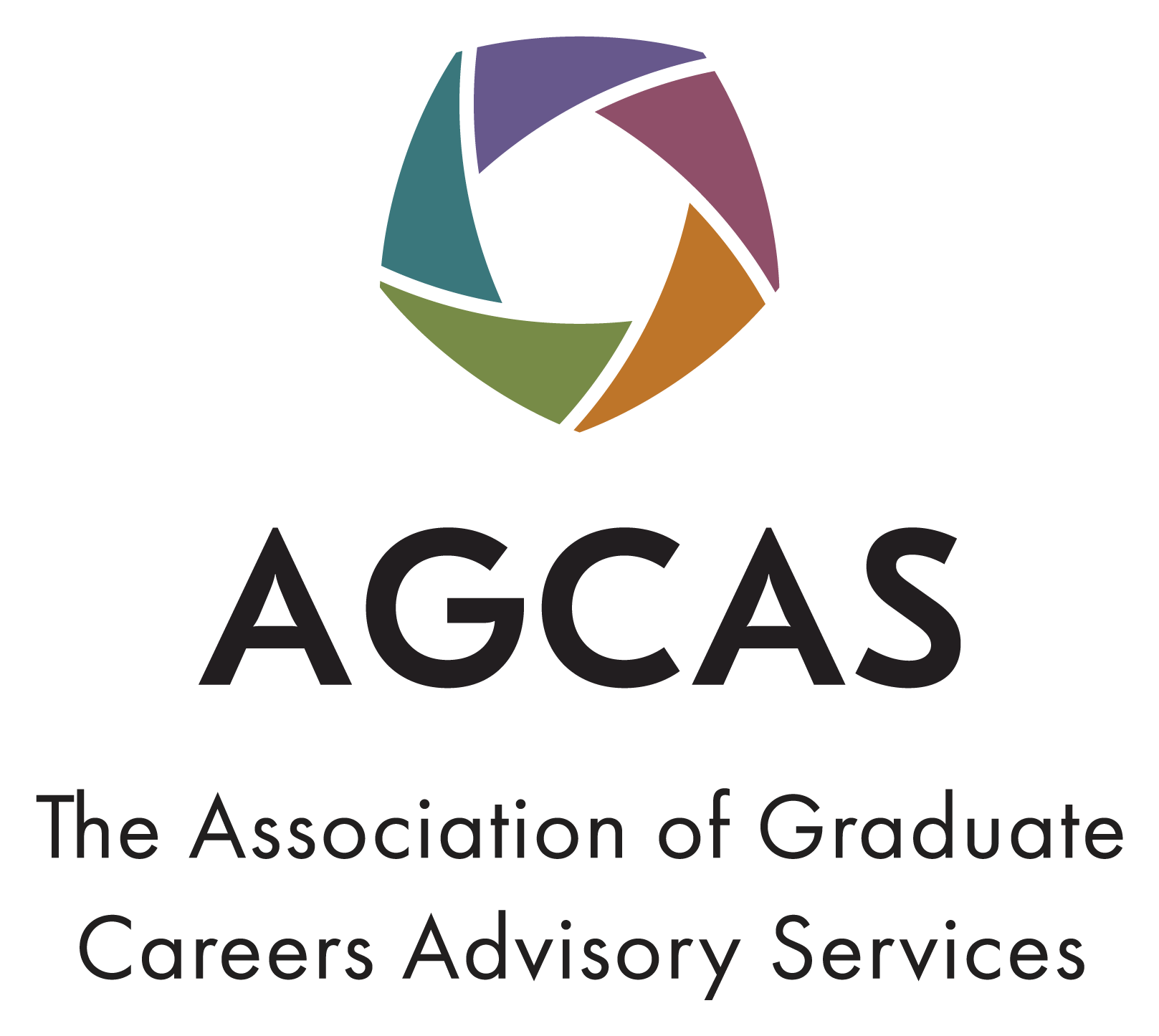
Winner
Supporting Student and Graduate Employability Award
AGCAS Awards for Excellence 2024
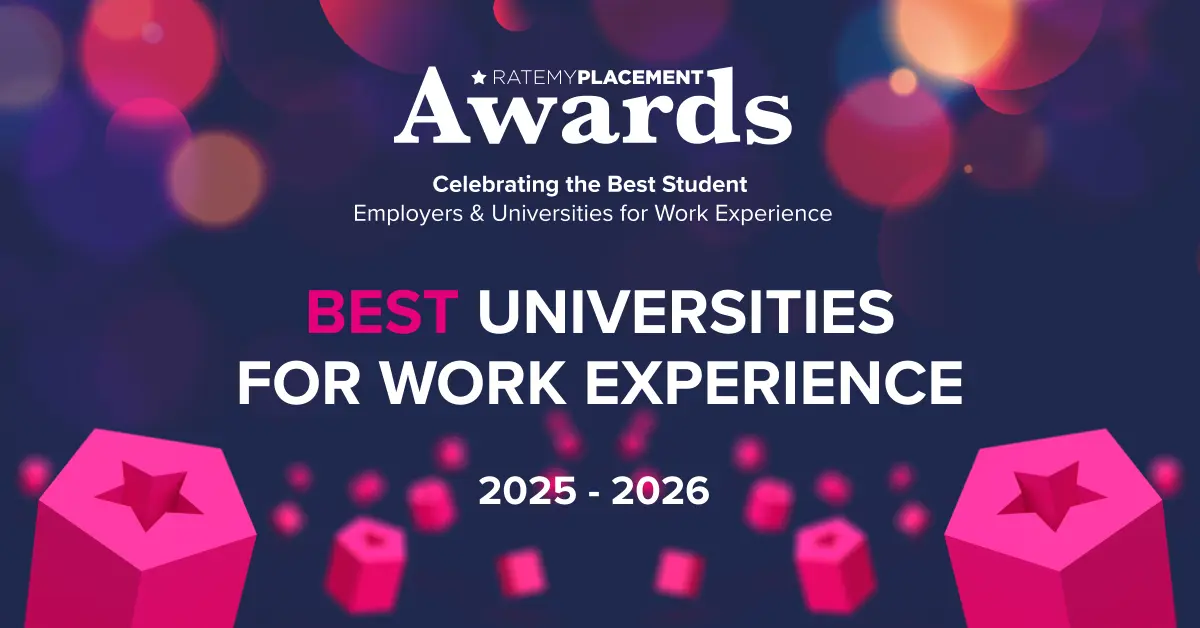
Top 50
Best Universities for Work Experience in the UK
2025 RateMyPlacement Awards
